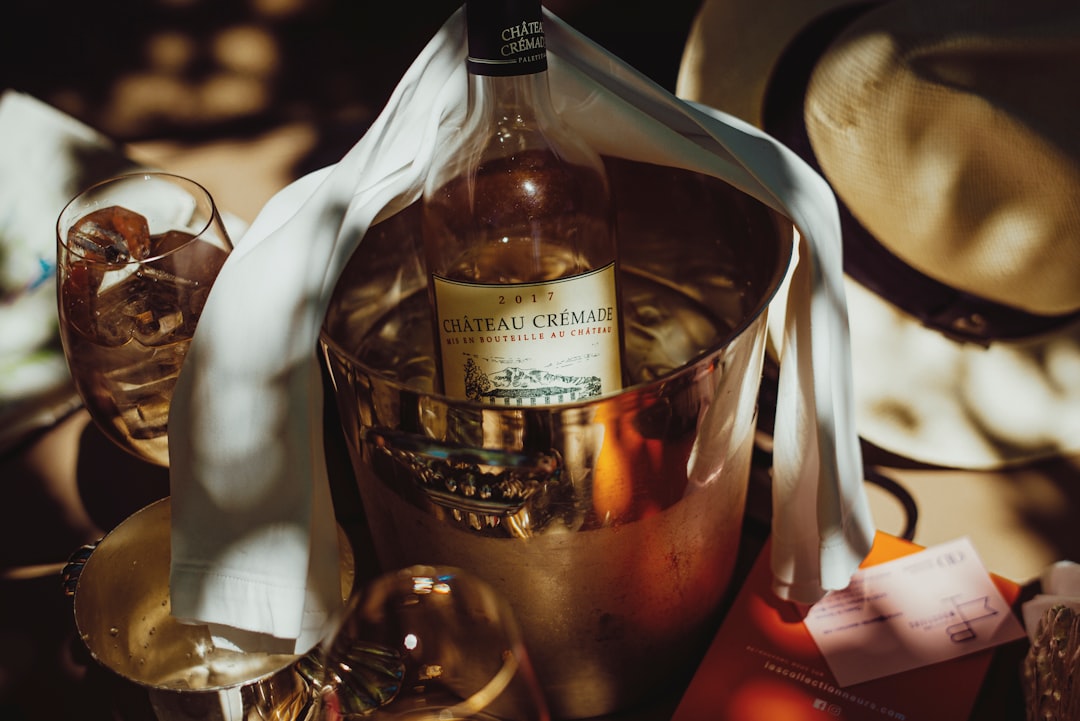White wine is a popular alcoholic beverage that requires proper storage to maintain its taste, aroma, and quality. The best way to store white wine is in a fridge, but what is the best temperature to do so? In this article, we will explore the best temperature for a white wine fridge and answer some frequently asked questions on this topic.
Best Temperature for White Wine Fridge?
The ideal temperature range for storing white wine in a fridge is between 45-50 degrees Fahrenheit (7-10 degrees Celsius). However, this range may vary depending on the type of white wine being stored. For example, Chardonnay and Viognier are best stored at the lower end of this range, while Sauvignon Blanc and Pinot Grigio are better stored at the higher end.
What is the Science behind Storing White Wine at a Specific Temperature?
The science behind storing white wine at a specific temperature is based on the chemical reactions that occur in the wine. When wine is exposed to heat, it can oxidize, which leads to a loss of flavor and aroma. When it is exposed to cold temperatures, the wine’s acidity can become more pronounced, leading to a sharp taste. The ideal temperature range for white wine allows the wine to age properly and maintain its taste, aroma, and quality.
What are Some Popular Brands of White Wine Fridges, and How do They Compare in Terms of Price and Features?
Some popular brands of white wine fridges include Avanti, NewAir, and Wine Enthusiast. These brands offer a range of sizes and features, such as dual temperature zones, adjustable shelves, and humidity control. Prices vary depending on the brand, size, and features of the fridge.
Are There any Other Factors to Consider When Storing White Wine, Such as Humidity or Light Exposure?
Humidity and light exposure are also important factors to consider when storing white wine. High humidity can cause mold to grow on the corks, which can affect the taste and quality of the wine. Light exposure can cause the wine to age prematurely, leading to a loss of flavor and aroma. Therefore, it is important to store white wine in a cool, dark, and humid environment.
Can a Regular Fridge be Used to Store White Wine in a Pinch, or is a Wine Fridge Necessary for Optimal Storage?
A regular fridge can be used to store white wine in a pinch, but it is not ideal for long-term storage. Regular fridges are not designed to maintain the proper temperature or humidity for wine storage, which can affect the taste and quality of the wine. Therefore, it is recommended to use a wine fridge for optimal storage.
What are Some Common Misconceptions about Storing White Wine, and How Can They be Dispelled with Science and Data?
One common misconception about storing white wine is that it should be served ice-cold. While this may be true for some wines, it is not ideal for all white wines. Serving wine too cold can dull the flavors and aromas, making it difficult to taste the nuances of the wine. Another misconception is that wine should be stored upright, but this can cause the cork to dry out, leading to oxidation. Wine should be stored on its side to keep the cork moist and prevent air from entering the bottle.
How Can a User Tell if Their White Wine Fridge is Functioning Properly, and What Should They Do if They Suspect a Problem?
A user can tell if their white wine fridge is functioning properly by checking the temperature and humidity levels regularly. If the temperature or humidity levels are outside the recommended range, it may be a sign that the fridge is not functioning properly. If a user suspects a problem, they should contact the manufacturer or professional repair service for assistance.
Are there any General Rules of Thumb for Storing White Wine that can be applied to any Fridge, Regardless of its Make or Model?
Yes, there are some general rules of thumb for storing white wine that can be applied to any fridge.
- Firstly, the wine should be stored at a constant temperature and humidity level. Fluctuations in temperature or humidity can affect the taste and quality of the wine.
- Secondly, the wine should be stored away from light and vibrations. Light can cause premature aging and vibrations can disturb the sediment in the wine, affecting its taste.
- Finally, the wine should be stored on its side to keep the cork moist and prevent air from entering the bottle.
Conclusion
In conclusion, the best temperature range for storing white wine in a fridge is between 45-50 degrees Fahrenheit (7-10 degrees Celsius). It is important to consider other factors such as humidity and light exposure when storing white wine, and to use a wine fridge for optimal storage. By following these guidelines, wine enthusiasts can enjoy their favorite white wines at their best quality and taste.
FAQs
Can white wine be stored in a regular fridge before serving?
Yes, white wine can be stored in a regular fridge before serving, but it should not be stored there for long-term storage. The fridge should be set to the recommended temperature range for white wine to ensure the wine maintains its taste and quality.
Can a white wine fridge be used to store other types of wine?
Yes, a white wine fridge can be used to store other types of wine. However, different types of wine require different storage temperatures, so it is important to adjust the temperature of the fridge accordingly.
Can white wine be stored in the freezer to chill it quickly?
It is not recommended to store white wine in the freezer to chill it quickly. The sudden change in temperature can affect the taste and quality of the wine. Instead, the wine can be placed in a bucket of ice water for a faster chill.
How long can white wine be stored in a fridge before it goes bad?
White wine can be stored in a fridge for up to 3-5 years before it goes bad, depending on the type of wine and the storage conditions. It is important to regularly check the temperature and humidity levels to ensure the wine is stored properly.
Roseanne is an avid wine enthusiast, and has been our expert wine connoisseur since day 1. She’s extremely informed about all varieties of wine and different types of wine fridges.

